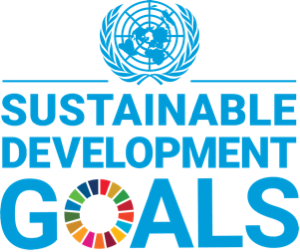Forecasting the Demand of Oil in Ghana: A Statistical Approach
DOI:
https://doi.org/10.52812/msbd.25Keywords:
Forecasting, Oil demand/consumption, Statistical models, Energy, Ghana AfricaAbstract
Oil plays a vital role in the economic growth and sustainability of industries and their corporations. The current study sought to forecast oil demand in Ghana for the next decade. The variables analyzed in this study were Petroleum and other liquids, motor gasoline, distillate fuel, and liquefied petroleum gases (LPG). The study utilized three univariate models; thus, linear regression, exponential regression, and exponential smoothing for forecasting various oil components. The linear regression model was deemed a better fit for the analysis of most of the variables. Furthermore, the findings revealed that the LPG growth rate is faster and requires less time to double in numbers than the other energy sources. Also, the exponential smoothing model was ineffective and inefficient. Overall, the demand for oil components analyzed will follow an increasing pattern from 2017 to 2027.
References
Abledu, G. K., Agyemang, B., & Reubin, S. (2013). Forecasting Demand for Petroleum Products in Ghana using Time Series Models. Journal of Economics and Sustainable Development, 4(17), 129–141.
Ackah, I. (2014). Determinants of natural gas demand in Ghana. Opec Energy Review, 38(3), 272–295. https://doi.org/10.1111/opec.12026.
Aideyan, H. O., & Nima, M. (2015). Market Analysis and Forecasting of Oil and Gas (Lubricant) Management In Nigeria – A Case Study of Grand Petroleum. International Journal of Economics, Commerce and Management, 3(6), 23-35.
Al-Yousef, N. A. (2004). Modeling and Forecasting the demand for Crude Oil in Asian Countries. Energy & Security in the Changing World, 2004 International Conference.
Azadeh, A., Khakestani, M., & Saberi, M. (2009). A flexible fuzzy regression algorithm for forecasting oil consumption estimation. Energy Policy, 37(12), 5567–5579. https://doi.org/10.1016/J.ENPOL.2009.08.017
BP. (2020). Statistical Review of World Energy 2020. London: BP p.l.c. https://www.bp.com
Carlevaro, F., Romerio, F., Spierer, C., & Gault, J. (1989). Modeling and Forecasting the World Demand for Oil. IFAC Proceedings Volumes, 22(17), 343–348. https://doi.org/10.1016/S1474-6670(17)52952-3
Chai, J., Wang, S., Wang, S., & Guo, J. (2012). Demand Forecast of Petroleum Product Consumption in the Chinese Transportation Industry. Energies, 5(3), 577–598. https://doi.org/10.3390/en5030577
Chen, Y., Zhang, C., He, K., & Zheng, A. (2018). Multi-step-ahead crude oil price forecasting using a hybrid grey wave model. Physica A: Statistical Mechanics and its Applications, 501, 98-110. https://doi.org/10.1016/j.physa.2018.02.061
Chèze, B., Gastineau, P., & Chevallier, J. (2011). Forecasting world and regional aviation Jet-Fuel demands to the mid term (2025). Energy Policy, 39(9), 5147–5158. https://doi.org/10.1016/J.ENPOL.2011.05.049
Chopra, S., & Meindl, P. (2015). Supply Chain Management: Strategy, Planning, and Operation (6th ed.). Pearson.
Davidov, O., & Zelen, M. (2000). Exact tests for exponential regression. Journal of Statistical Planning and Inference, 88(1), 87–97. https://doi.org/10.1016/S0378-3758(99)00202-5
Duku, M. H., Gu, S., & Hagan, E. B. (2011). A comprehensive review of biomass resources and biofuels potential in Ghana. Renewable & Sustainable Energy Reviews, 15(1), 404–415. https://doi.org/10.1016/j.rser.2010.09.033
Ebrahimi, M., & Ghasabani, N. C. (2015). Forecasting OPEC crude oil production using a variant Multicyclic Hubbert Model. Journal of Petroleum Science and Engineering, 133, 818–823. https://doi.org/10.1016/J.PETROL.2015.04.010
Fatima, T., Xia, E., & Ahad, M. (2019). Oil demand forecasting for China: a fresh evidence from structural time series analysis. Environment, Development and Sustainability, 21(3), 1205–1224. https://doi.org/10.1007/s10668-018-0081-7
Fiévet, L., Forró, Z., Cauwels, P., & Sornette, D. (2015). A general improved methodology to forecasting future oil production: Application to the U.K. and Norway. Energy, 79, 288–297. https://doi.org/10.1016/J.ENERGY.2014.11.014
Forouzanfar, M., Doustmohammadi, A., & Hasanzadeh, S. (2012). Transport energy demand forecast using multi-level genetic programming. Applied Energy, 91(1), 496–503. https://doi.org/10.1016/J.APENERGY.2011.08.018
Javed, S. A., & Liu, S. (2018). Predicting the research output/growth of selected countries: application of Even G.M. (1, 1) and NDGM models. Scientometrics, 115(1), 395–413. https://doi.org/10.1007/S11192-017-2586-5
Javed, S. A., Zhu, B., & Liu, S. (2020b). Forecast of biofuel production and consumption in top CO2 emitting countries using a novel grey model. Journal of Cleaner Production, 276, 123997. https://doi.org/10.1016/J.JCLEPRO.2020.123997
Javed, S.A., Ikram, M., Tao, L., & Liu, S. (2020a). Forecasting Key Indicators of China's Inbound and Outbound Tourism: Optimistic-Pessimistic Method. Grey Systems: Theory and Application, 11(2), 265-287. https://doi.org/10.1108/GS-12-2019-0064
Kontorovich, A. E. (2009). Estimate of global oil resource and the forecast for global oil production in the 21st century. Russian Geology and Geophysics, 50(4), 237–242. https://doi.org/10.1016/J.RGG.2009.03.001
Li, J., Wang, R., Wang, J., & Li, Y. (2018). Analysis and forecasting of the oil consumption in China based on combination models optimized by artificial intelligence algorithms. Energy, 144, 243–264. https://doi.org/10.1016/J.ENERGY.2017.12.042
Li, S., & Wang, Q. (2019). India's dependence on foreign oil will exceed 90% around 2025 - The forecasting results based on two hybridized NMGM-ARIMA and NMGM-BP models. Journal of Cleaner Production, 232, 137–153. https://doi.org/10.1016/J.JCLEPRO.2019.05.314
Mahmoudi, A., Deng, X., Javed, S. A., & Zhang, N. (2021). Sustainable Supplier Selection in Megaprojects through Grey Ordinal Priority Approach. Business Strategy and The Environment, 30, 318-339 https://doi.org/10.1002/bse.2623
Mensah, J. T., Marbuah, G., & Amoah, A. (2016). Energy demand in Ghana: A disaggregated analysis. Renewable & Sustainable Energy Reviews, 53, 924-935. https://doi.org/10.1016/j.rser.2015.09.035
Ofosu-Adarkwa, J., Xie, N., & Javed, S. A. (2020). Forecasting CO2 Emissions of China's Cement Industry using Grey System Models and Emissions' Technical Conversion. Renewable and Sustainable Energy Reviews, 130, 109945. https://doi.org/10.1016/j.rser.2020.109945
Quartey-Papafio, T. K., Javed, S. A. & Liu, S. (2020). Forecasting cocoa production of six major producers through ARIMA and grey models. Grey Systems: Theory and Application, 11(3), 434-462. https://doi.org/10.1108/GS-04-2020-0050
Richardson, I., Thomson, M., Infield, D., & Clifford, C. (2010). Domestic electricity use: A high-resolution energy demand model. Energy and Buildings, 42(10), 1878–1887. https://doi.org/10.1016/j.enbuild.2010.05.023
Sarstedt, M., & Mooi, E. A. (2014). A Concise Guide to Market Research: The Process, Data, and Methods Using IBM SPSS Statistics (2nd ed.). Germany: Springer
Suleiman, M. (2013). Oil Demand, Oil Prices, Economic Growth and the Resource Curse: An Empirical Analysis. CiteSeerx. http://citeseerx.ist.psu.edu/viewdoc/summary?doi=10.1.1.677.8083
Timmermann, A. (2006). Chapter 4 - Forecast Combinations. In Handbook of Economic Forecasting (Vol. 1, pp. 135–196). https://doi.org/10.1016/S1574-0706(05)01004-9
Tularam, G. A., & Saeed, T. (2016). Oil-Price Forecasting Based on Various Univariate Time-Series Models. American Journal of Operations Research, 6(3), 226–235. https://doi.org/10.4236/AJOR.2016.63023
Wang, J., Feng, L., Zhao, L., Snowden, S., & Wang, X. (2011). A comparison of two typical multicyclic models used to forecast the world's conventional oil production. Energy Policy, 39(12), 7616–7621. https://doi.org/10.1016/J.ENPOL.2011.07.043
Wang, Q., Song, X., & Li, R. (2018). A novel hybridization of nonlinear grey model and linear ARIMA residual correction for forecasting U.S. shale oil production. Energy, 165, 1320–1331. https://doi.org/10.1016/J.ENERGY.2018.10.032
Zhang, H. L., Baeyens, J., Degrève, J., & Cáceres, G. (2013). Concentrated solar power plants: Review and design methodology. Renewable & Sustainable Energy Reviews, 22(22), 466–481. https://doi.org/10.1016/j.rser.2013.01.032
Zhang, M., Mu, H., Li, G., & Ning, Y. (2009). Forecasting the transport energy demand based on PLSR method in China. Energy, 34(9), 1396–1400. https://doi.org/10.1016/J.ENERGY.2009.06.032
.

Downloads
Published
How to Cite
Issue
Section
License
Copyright (c) 2021 Science Insight

This work is licensed under a Creative Commons Attribution-NonCommercial 4.0 International License.
Creative Commons Non Commercial CC BY-NC: The work is distributed under the terms of the Creative Commons Attribution-NonCommercial 4.0 License which permits non-commercial use, reproduction and distribution of the work without further permission provided the original work is properly attributed.











